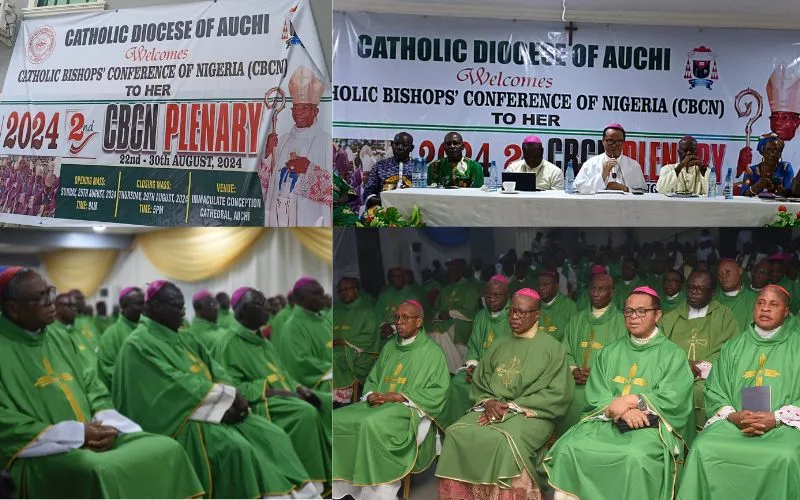The Catholic Church leaders go on to highlight the uniqueness and success of the Catholic Education Curriculum over the years and urge Nigeria’s Ministry of education to “respect the Curriculum of Catholic education and to offer our educational institutions the assistance they need to perform optimally”
“Our educational system, with its emphasis on the all-round formation of the mind, conscience, and character, has continued to produce thousands of personalities who are doing exceedingly well in all sectors of life both within and outside the country,” they say.
CBCN members note that Catholic-sponsored institutions of learning and health centres are “not-for-profit public facilities” serving all Nigerians, regardless of ethnicity or religion. They emphasize, “We do not accept the fact that our schools and hospitals are seen by the government as private ventures.”
Institutions of learning and health facilities under the auspices of the Catholic Church in Nigeria “render public services to all without exception”, they emphasize in the statement that CBCN president, Archbishop Lucius Iwejuru Ugorji and Secretary, Bishop Donatus A. Ogun, signed.
In their statement, Nigeria’s Catholic Bishops also express “deep concern” over the challenges the people of God in the country are facing, including food insecurity and hunger.
They point to a combination of factors contributing to this challenge, including high electricity tariffs, rising costs of petroleum products, transportation, and the general lack of basic infrastructure in many parts of the country.
They add, “Food insecurity and hunger in Nigeria are caused, among other factors, by persistent insecurity from terrorists, bandits, kidnappers, and herdsmen that have disrupted agricultural activities and livelihoods in many parts of the country.”
The government's efforts to address the challenge through measures such as the declaration of a state of emergency on food insecurity, food importation, cash transfer schemes, and distribution of palliatives have not stabilized food prices, CBCN members note.
They advocate for comprehensive policies and programs that address the root causes of food insecurity. They also “enjoin governments to support farmers with subsidies, soft loans, modern technology, and improved seedlings” and caution against “genetically modified seedlings.”
The Catholic Church leaders also underscore the need for collective responsibility and repentance saying that the current state of Nigeria is a result of corruption and dishonesty at various levels of society.




